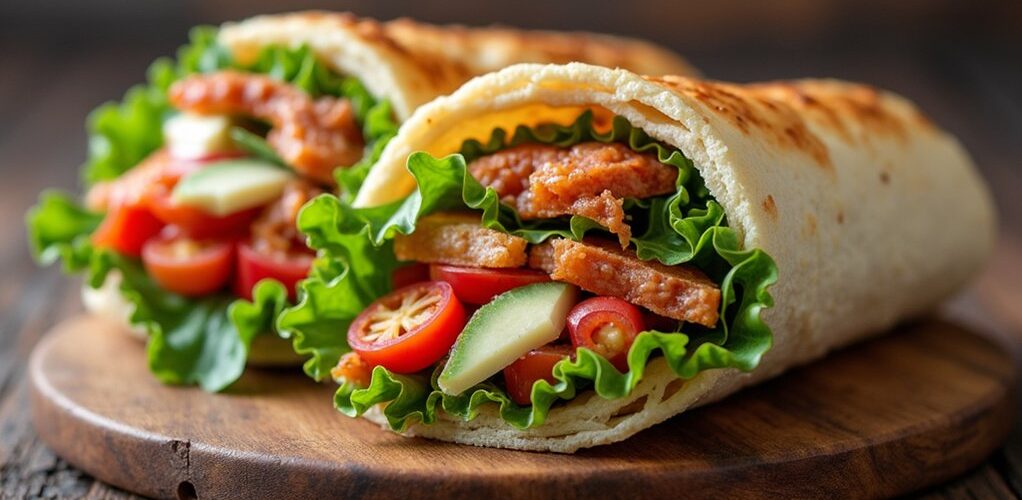
Subway wraps are not considered low-carb options, containing 48-49 grams of carbohydrates per serving – higher than traditional bread options. The wraps, made primarily from enriched unbleached flour, pack approximately 290 calories each and include hidden sugars from ingredients and dressings. For health-conscious diners, better alternatives include salads, protein bowls, or lettuce-wrapped options. Understanding the nutritional components of wrap ingredients reveals smarter ways to customize lunch choices at Subway.
Key Takeaways
- Subway wraps are not low carb, containing 48-49 grams of carbohydrates compared to 30-40 grams in whole grain sandwiches.
- Hidden sugars from enriched unbleached flour and dressings make wraps a poor choice for low-carb or keto diets.
- Salads and Protein Bowls are better low-carb alternatives at Subway, with Veggie Delite salads containing only 5-9g net carbs.
- The Turkey Breast Wrap contains 170 more calories than its sandwich counterpart and higher carbohydrate content.
- Lettuce wraps are the best low-carb option, paired with lean proteins and oil-based dressings for a keto-friendly meal.
Understanding Subway Wrap Nutrition Facts
When considering Subway wraps as a potential low-carb option, consumers might be surprised to learn that these seemingly healthier alternatives often pack more carbohydrates than expected. A typical Subway wrap contains 48 to 49 grams of carbohydrates, making it a challenging choice for those following a low-carb diet.
The nutritional information reveals that wraps contain approximately 290 calories and 8 grams of fat per serving, with sodium levels reaching up to 780mg.
The Turkey Breast Signature Wrap exemplifies this trend, containing 420 calories and 10 grams of fat, considerably higher than its sandwich counterpart.
The use of enriched unbleached flour in these wraps further diminishes their nutritional value, as it contains synthetic vitamins and added sugars, making traditional whole-grain bread sandwiches a more suitable option for health-conscious consumers.
Carbohydrate Content in Popular Subway Wraps
Subway wraps, containing between 48-49 grams of carbohydrates each, actually pack more carbs than their traditional bread counterparts, making them a less suitable choice for low-carb dieters.
The presence of hidden sugars in the enriched unbleached flour used for wraps further contributes to their total carbohydrate count, with additional sugars often found in dressings and condiments.
To calculate net carbs in Subway wraps, customers should subtract the fiber content from total carbohydrates, though the resulting number still remains relatively high compared to other menu alternatives.
Wrap Vs Bread Carbs
Many health-conscious diners assume wraps are a lower-carb alternative to traditional bread, yet the numbers tell a different story. A standard Subway wrap contains approximately 48-49 grams of carbohydrates per serving, considerably higher than a 6-inch whole grain sandwich, which typically provides 30-40 grams of carbs.
The difference becomes even more apparent when examining overall nutritional content.
While wraps may appear lighter, they pack more calories and sodium than their sandwich counterparts. For instance, the Turkey Breast Signature Wrap delivers 420 calories and 1,550 mg of sodium, compared to just 250 calories and 650 mg of sodium in the equivalent sandwich.
This data suggests that choosing whole grain bread over wraps may be a more effective strategy for those monitoring their carbohydrate intake.
Hidden Sugar Content Analysis
Beyond the basic carbohydrate comparison between wraps and sandwiches lies a deeper nutritional concern regarding hidden sugars in Subway's wrap offerings.
Analysis reveals that these wraps, made with enriched unbleached flour, contain additional sugars that contribute to their increased carbohydrate intake levels of 48-49 grams per serving, alongside concerning sodium content.
Key considerations when evaluating Subway wrap sugar content:
- Enriched flour base contains more refined carbohydrates than whole grain alternatives.
- Added vegetable flavoring ingredients often include hidden sugar compounds.
- Combined carbohydrate and sodium content exceeds traditional sandwich values.
- Synthetic vitamin enrichment process may mask the presence of additional sugars through ingredient processing.
These factors make Subway wraps a potentially challenging choice for those monitoring their daily sugar and carbohydrate consumption.
Net Carb Calculation Guide
Understanding the net carb content of Subway wraps requires careful calculation and consideration of multiple nutritional components. To determine net carbs, customers should subtract fiber content from the total carbohydrate count, which typically ranges from 48 to 49 grams per wrap.
When planning a low-carb meal at Subway, it's important to note that wraps generally contain more carbohydrates than their bread-based counterparts. The Turkey Breast Signature Wrap, for example, contains significant carbohydrates even before accounting for additional toppings.
While Subway wraps can be customized with low-carb ingredients like vegetables and proteins, the wrap itself remains a substantial source of carbohydrates. For those strictly monitoring their carb intake, calculating net carbs becomes essential, though Subway's nutritional information doesn't explicitly highlight this metric.
Comparing Wraps to Traditional Sub Bread
Contrary to popular belief, Subway wraps contain more carbohydrates than traditional sub bread, with 48-49 grams compared to 30-40 grams in a six-inch whole wheat sandwich.
The wrap's ingredients, while appearing lighter, create a denser product that packs more calories, fat, and sodium than its bread-based counterpart.
Traditional whole-grain sub bread emerges as the healthier choice, offering double the fiber content and better blood sugar control, making it a more nutritious option for health-conscious customers.
Carb Content Side-by-Side
A detailed comparison of carbohydrate content reveals that Subway wraps actually contain more carbs than traditional sub sandwiches, with wraps averaging 48-49 grams compared to 30-40 grams in a 6-inch whole wheat sub.
When examining the nutritional profiles side-by-side, the differences become even more apparent, especially for those monitoring their carb intake.
Key differences in wrap vs. whole grain bread options:
- Wraps pack 18-19 more grams of carbs than traditional subs
- Turkey Breast Wrap contains 420 calories versus 250 in the sandwich version
- Sodium content in wraps reaches 1,550 mg compared to 650 mg in whole grain options
- Protein content is higher in wraps at 28 grams versus 18 grams in traditional subs
Wrap Ingredients Vs Bread
Detailed ingredient analysis between Subway's wraps and traditional bread reveals surprising nutritional contrasts that impact dietary choices.
While wrap ingredients include enriched unbleached flour, they contain distinctly higher carbohydrate levels at 48-49 grams compared to whole-grain bread options at 30-40 grams.
Despite offering slightly more protein, wraps present several nutritional drawbacks. They are high in sodium, containing up to 1,550 mg per serving, more than double the amount found in traditional 6-inch sandwiches.
The nine-grain wheat bread alternative provides superior nutritional benefits, featuring twice the fiber content of wraps. Additionally, traditional bread options have fewer calories, averaging 250 calories compared to 290 in wraps, making them a more balanced choice for health-conscious consumers.
Which Option Wins Why
When comparing nutritional profiles between Subway's wraps and traditional sub bread, the evidence clearly favors six-inch whole grain sandwiches as the superior choice for health-conscious consumers.
While Subway wraps might seem like a low-carb alternative, they actually contain higher carbohydrate content and more calories than their bread-based counterparts.
- Whole grain bread offers double the fiber content of wraps, promoting better satiety and digestive health.
- Traditional six-inch subs contain 170 fewer calories than comparable wraps.
- Wraps pack nearly 900mg more sodium than sandwiches, raising health concerns.
- Despite slightly higher protein content in wraps, the overall nutritional balance makes whole grain bread the better option for low-carb meals and general health maintenance.
Best Low-Carb Alternatives at Subway
Focusing on healthy eating while dining at Subway requires understanding the best low-carb alternatives available on their menu. The restaurant offers several options that cater to carb-conscious customers, with salads and Protein Bowls leading the way as primary alternatives to traditional sandwiches. These choices can be customized with lean protein options like Turkey Breast or Grilled Chicken, which contain minimal carbohydrates. For ideal low-carb meals, customers should incorporate fresh vegetables like cucumbers and lettuce while being mindful of sauce selections. The Veggie Delite and Chicken Bacon Ranch salads provide excellent starting points, containing only 5-9g net carbs. Adding avocado can enhance satiety without greatly impacting carbohydrate intake, while choosing light dressings helps maintain the meal's low-carb status. Including non-starchy vegetables like spinach and kale can further enhance the nutritional value of your meal while supporting your low-carb goals.
Hidden Sources of Carbs in Subway Wraps
Many health-conscious diners might be surprised to learn that Subway wraps contain considerably more carbohydrates than traditional bread options. Each wrap contains approximately 48-49 grams of carbs, markedly higher than whole grain bread alternatives.
While marketed with healthy-sounding names, these wraps harbor hidden sources of carbs through enriched flour, added sugars, and synthetic vitamins.
- Enriched unbleached flour forms the dense base, contributing notably to carbohydrate content.
- Added sugars appear in various forms throughout the wrap ingredients.
- The denser texture means more flour per serving compared to bread.
- Despite vegetable-themed names like spinach and tomato basil, the wraps offer minimal nutritional advantages.
The Turkey Breast Signature Wrap exemplifies this issue, containing higher sodium and calories than its six-inch sandwich counterpart on whole grain bread.
Making Smarter Wrap Choices for Weight Management
Smart weight management at Subway requires careful consideration of wrap selections, particularly given their surprising nutritional content.
When comparing options, wraps often contain more calories and carbohydrates than their sandwich counterparts, with up to 49 grams of carbs per serving.
For effective weight management, customers should consider alternatives to wraps. A six-inch whole wheat sandwich provides better nutritional value, containing fewer calories, less sodium, and double the fiber content compared to wraps.
Those seeking to minimize carbohydrate intake might opt for salads or protein bowls, which offer greater flexibility in ingredient selection.
Additionally, the higher fiber content in whole wheat bread options promotes satiety, making it easier to maintain portion control and achieve weight management goals while still enjoying a satisfying meal.
Including non-starchy vegetables in your meal can further enhance nutrient intake without significantly increasing carb content, aiding in a balanced and health-conscious diet.
The Truth About Spinach and Tomato Wraps
Despite their wholesome-sounding names, Subway's spinach and tomato basil wraps present a surprising nutritional reality for health-conscious consumers.
These wraps contain approximately 48-49 grams of carbohydrates each, with the primary ingredient being enriched unbleached flour rather than actual vegetables. For those seeking healthier choices, it's important to understand these wraps are not inherently low-carb alternatives. Notably, refined carbohydrates like those found in these wraps convert swiftly to glucose, disrupting ketosis.
- A standard spinach or tomato wrap contains nearly 290 calories and 8 grams of fat.
- The sodium content ranges from 730-780mg per wrap.
- Wraps are typically denser than traditional whole-grain bread options.
- The Turkey Breast Signature Wrap contains 170 more calories than its six-inch sandwich counterpart.
This information suggests that conventional whole-grain bread options may actually be more suitable for those monitoring their carbohydrate intake.
Protein Options to Balance Your Wrap
When selecting protein options for Subway wraps, customers can strategically balance the high carbohydrate content with lean, nutrient-dense meats. Turkey breast and grilled chicken stand out as excellent lean proteins, containing minimal net carbs while providing substantial protein content for sustained energy. To maximize nutritional benefits, combining these protein options with low-carb vegetables creates a more balanced meal. Adding crisp lettuce and invigorating cucumbers not only enhances flavor but also introduces beneficial nutrients without significant carbohydrate impact. While bacon offers another protein choice, lean options like turkey and chicken provide better nutritional value for those monitoring their carb intake. For individuals seeking to minimize carbohydrates further, converting their wrap selection into a protein bowl or salad allows for greater control over their macronutrient ratios. It's important to note that the keto diet can help improve insulin sensitivity and reduce HbA1c levels, which may be beneficial for individuals managing their carbohydrate intake.
Calculating Net Carbs in Your Subway Order
Understanding the precise carbohydrate content in Subway orders requires careful mathematical consideration of both total carbohydrates and fiber content.
When calculating net carbs in Subway meals, customers following low-carb diets must subtract the fiber from total carbohydrates to determine the true impact on blood sugar levels.
- Standard Subway wraps contain 48-49 grams of total carbohydrates.
- Subtract fiber content (typically 4 grams) to calculate net carbs.
- Spinach and tomato basil wraps use enriched flour, maintaining high carb counts.
- Salad alternatives provide considerably lower net carbs at around 5 grams.
Adequate carbohydrate management is essential for those maintaining a low-carb diet, ensuring that meals like Subway orders align with their dietary goals. For those monitoring their carbohydrate intake, opting for salads with protein-rich toppings offers a more suitable alternative to wraps, effectively reducing the overall carbohydrate load while maintaining satisfying portion sizes.
Healthier Subway Wrap Customization Tips
Making healthier choices at Subway begins with strategic ingredient swaps that can greatly reduce the carbohydrate content of wraps while maintaining satisfying flavors.
Customers can create more nutritious wrap combinations by selecting lean proteins like turkey breast or grilled chicken, which contribute minimal carbohydrates while providing essential nutrients.
Adding low-carb vegetables such as cucumbers, lettuce, and avocados enhances both the nutritional value and satiety factor without considerably increasing the carbohydrate count.
Smart Wrap Ingredient Swaps
Creating a healthier Subway wrap experience starts with strategic ingredient substitutions that can greatly reduce carbohydrate content while maintaining flavor and satisfaction.
For those seeking to minimize carbs while maximizing nutrition, thoughtful swaps can transform a standard wrap into a more wholesome meal choice.
- Replace traditional wraps with lettuce wraps to dramatically reduce the 48-49 grams of carbohydrates typically found in standard options.
- Select lean proteins like turkey breast or grilled chicken to add filling protein without excess carbs.
- Load up on fiber-rich vegetables such as cucumbers and green peppers to enhance satiety.
- Choose oil-based or vinegar dressings instead of sweet sauces to avoid hidden carbohydrates while maintaining moisture and flavor.
Building Better Wrap Choices
The art of customizing a healthier Subway wrap lies in thoughtful ingredient selection and strategic assembly techniques. When building a low-carb wrap alternative, customers can maximize nutritional value by selecting protein-rich fillings like turkey breast or grilled chicken, which add minimal carbohydrates to the meal.
For those seeking to reduce carb intake further, transforming a standard wrap into a lettuce wrap provides a viable solution. Loading the wrap with low-carb vegetables such as cucumbers, green peppers, and fresh lettuce not only enhances nutritional content but also adds satisfying crunch and volume.
To maintain the low-carb profile, choose oil and vinegar-based dressings instead of sugar-laden sauces. These strategic choices help create a balanced meal while keeping carbohydrate content in check.
Impact of Wrap Fillings on Total Carb Count
While Subway wraps start with a base carbohydrate count of 48-49 grams, the selection of fillings can greatly alter the total carbohydrate content of the finished product. Protein choices like turkey breast and grilled chicken contribute minimal carbohydrates, making them ideal for those monitoring their carb intake. However, adding high-carb toppings and sugar-laden sauces can quickly raise the overall carbohydrate count.
- Choose lean proteins like turkey breast or grilled chicken to maintain lower carb levels.
- Opt for non-starchy vegetables as toppings to minimize additional carbohydrates.
- Select oil-based dressings instead of sweet sauces to reduce hidden carbs.
- Consider converting your wrap into a salad to considerably decrease total carbohydrate content.
For those managing type 2 diabetes, the ketogenic diet's emphasis on low-carb intake is beneficial, as it can enhance insulin sensitivity and stabilize blood glucose levels.
Keto-Friendly Subway Wrap Modifications
For those following a ketogenic diet, replacing traditional Subway wraps with lettuce-based alternatives dramatically reduces carbohydrate intake while maintaining the satisfying elements of a wrapped sandwich. Customizing protein selections, such as grilled chicken or turkey breast, creates a filling meal base without compromising ketosis goals. The selection of appropriate sauces becomes essential, with oil-based dressings and vinegar offering flavorful alternatives to high-carb options while keeping the meal keto-compliant. Choosing keto-friendly sweeteners like stevia or erythritol can further enhance the taste of your meal without disrupting ketosis.
Lettuce-Based Alternative Options
Making smart substitutions at Subway allows health-conscious diners to enjoy their favorite sandwich combinations without excessive carbohydrates.
Lettuce wraps serve as an excellent foundation for a customized, keto-friendly meal, dramatically reducing the carbohydrate content compared to traditional flour-based wraps. By incorporating low-carb vegetables and protein options like grilled chicken, customers can create satisfying meals that align with their dietary goals.
- Replace traditional wraps with fresh, crisp lettuce leaves to reduce net carbs from 48g to nearly zero
- Select protein-rich fillings such as grilled chicken, which contains only 1g of net carbs
- Add variety with low-carb vegetables like spinach, cucumbers, and bell peppers
- Choose olive oil and vinegar-based dressings instead of sugar-laden alternatives
Customizing Sauces For Keto
Selecting appropriate sauces plays an essential role in maintaining ketogenic requirements when customizing Subway wraps. When choosing sauces, opt for oil-based dressings like olive oil or vinegar, which contain minimal carbohydrates.
Mustard and mayonnaise serve as excellent alternatives to higher-carb options, with mustard offering zero carbs and mayo providing richness without significant carb content.
To maximize control over carb intake, request all sauces on the side and pair them with low-carb toppings such as avocado, cucumbers, and leafy greens.
It's vital to verify nutritional information for pre-made sauces, as they may contain hidden sugars. Customers can consult Subway staff or check ingredient labels to guarantee their sauce choices align with ketogenic dietary goals while maintaining flavor satisfaction.
Analyzing Subway's Wrap Ingredients List
Despite their popularity as a perceived healthier alternative to traditional sandwiches, Subway's wraps contain ingredients that may surprise health-conscious consumers.
An analysis of Subway wraps reveals they are made primarily from enriched unbleached flour and wheat gluten, resulting in significant carbohydrate content. These menu items, available in spinach and tomato basil flavors, incorporate additional ingredients like palm oil and vegetable powders that offer minimal nutritional benefits.
- Each wrap contains 48-49 grams of carbohydrates, making them unsuitable for low-carb diets.
- The calorie content of 290 per wrap, before fillings, exceeds many regular bread options.
- Sodium levels range from 730-780 mg, representing a substantial portion of daily recommended intake.
- The Turkey Breast Wrap contains 170 more calories than its sandwich counterpart on whole-grain bread.
Real Numbers: Carb Content Breakdown by Wrap Type
A detailed examination of Subway's wrap offerings reveals consistently high carbohydrate content across all varieties. Despite marketing suggestions, these wraps contain considerable carb content, ranging from 48-49 grams per serving, making them less suitable for those following a low carb diet. Analysis of popular options demonstrates this clearly:
| Wrap Type | Carbs (g) | Calories |
|---|---|---|
| Spinach | 48 | 410 |
| Tomato Basil | 49 | 420 |
| Turkey Breast | 48 | 420 |
| Regular | 49 | 430 |
The enriched unbleached flour used in these wraps contributes substantially to their high carbohydrate profile. For comparison, traditional six-inch sandwiches on whole-grain bread typically offer lower carb alternatives, with the Turkey Breast sandwich containing considerably fewer calories and fat grams.
Frequently Asked Questions
Is Subway Wrap Low Carb?
Subway wraps contain 48-49 grams of carbohydrates, making them unsuitable for low-carb diets. Nutritional comparison shows salads and protein bowls are better alternatives, offering considerably lower calorie count and carbohydrate content.
How Many Carbs Are in the Wraps at Subway?
Subway wraps contain between 48-49 grams of carbohydrates per serving. The wrap ingredients contribute greatly to this carb count, making them higher in carbohydrates compared to traditional sandwich options.
Are Subway Wraps Better for You Than Bread?
Subway wraps generally offer less nutritional value than bread options, containing more calories, carbs, fat, and sodium. Whole grain bread provides better fiber content, making it a healthier lunchtime choice for most people.
Are Wraps a Low Carb Option?
Wraps are not typically low carb alternatives, containing 48-49 grams of carbohydrates. While wrap fillings can be nutritious, those seeking lower carb options should choose lettuce wraps or salads instead.
Conclusion
While Subway wraps contain fewer carbohydrates than traditional sub bread, they are not truly low-carb options. With 35-50g of carbs per wrap, they exceed daily limits for strict low-carb diets. Health-conscious customers can reduce carb intake by choosing lettuce wraps, protein bowls, or customizing orders without the wrap. Understanding ingredient composition and tracking total carb content remains essential for maintaining dietary goals at Subway.
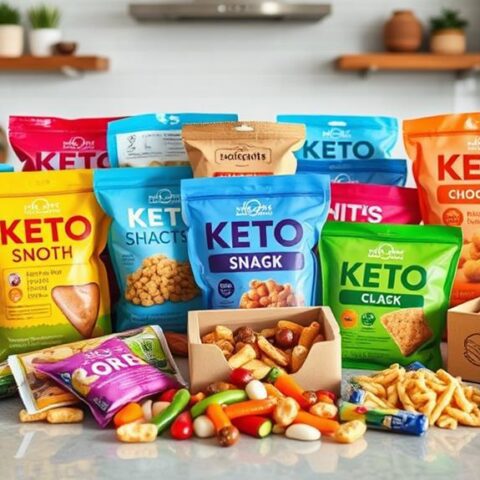

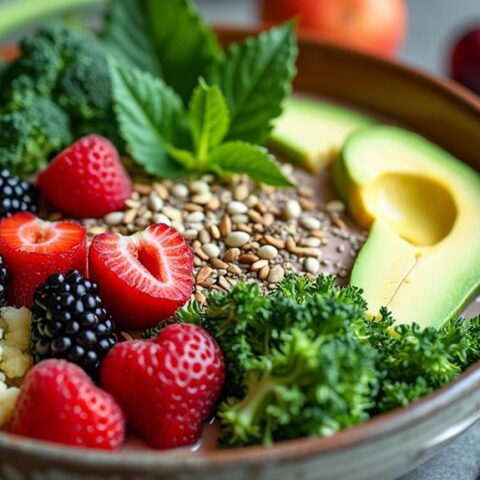
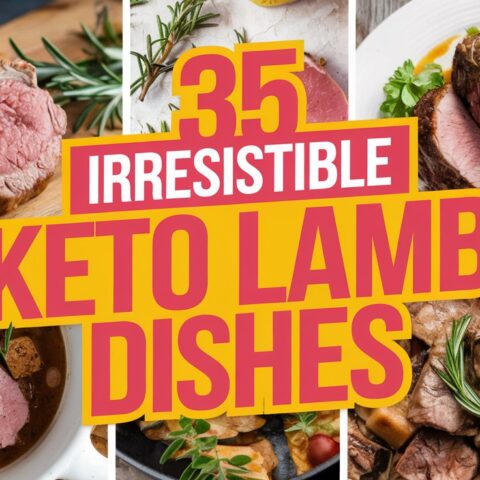
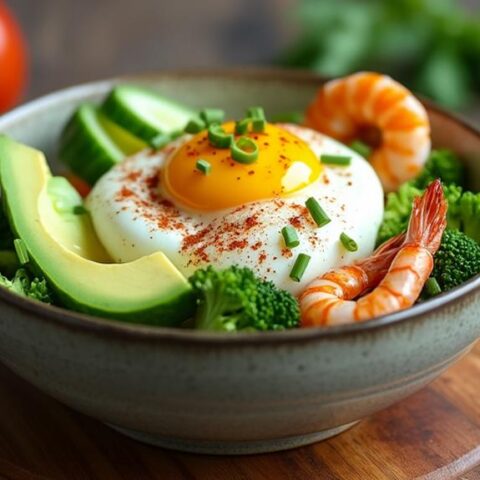





No Comments